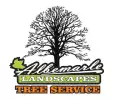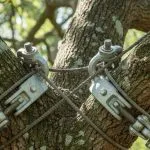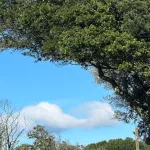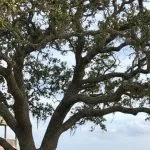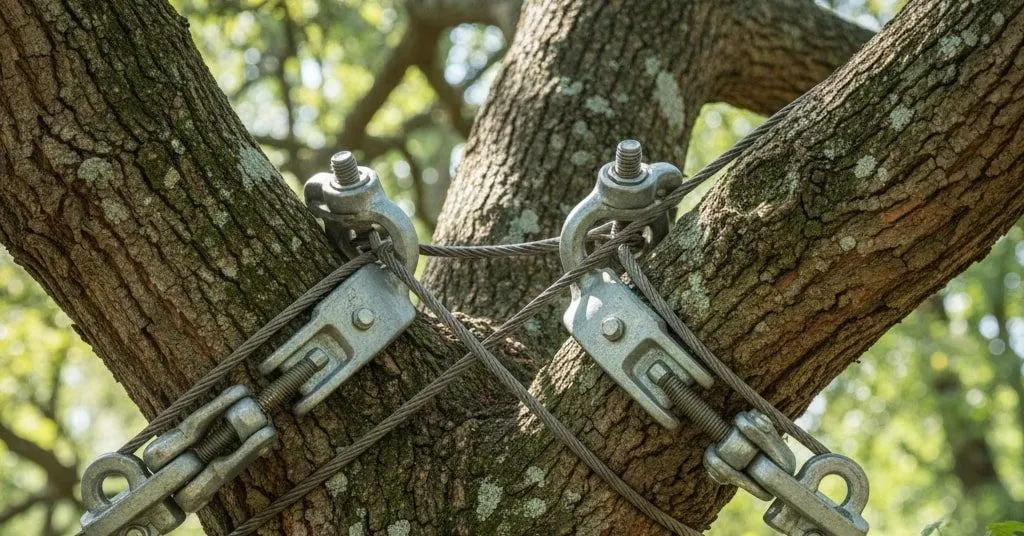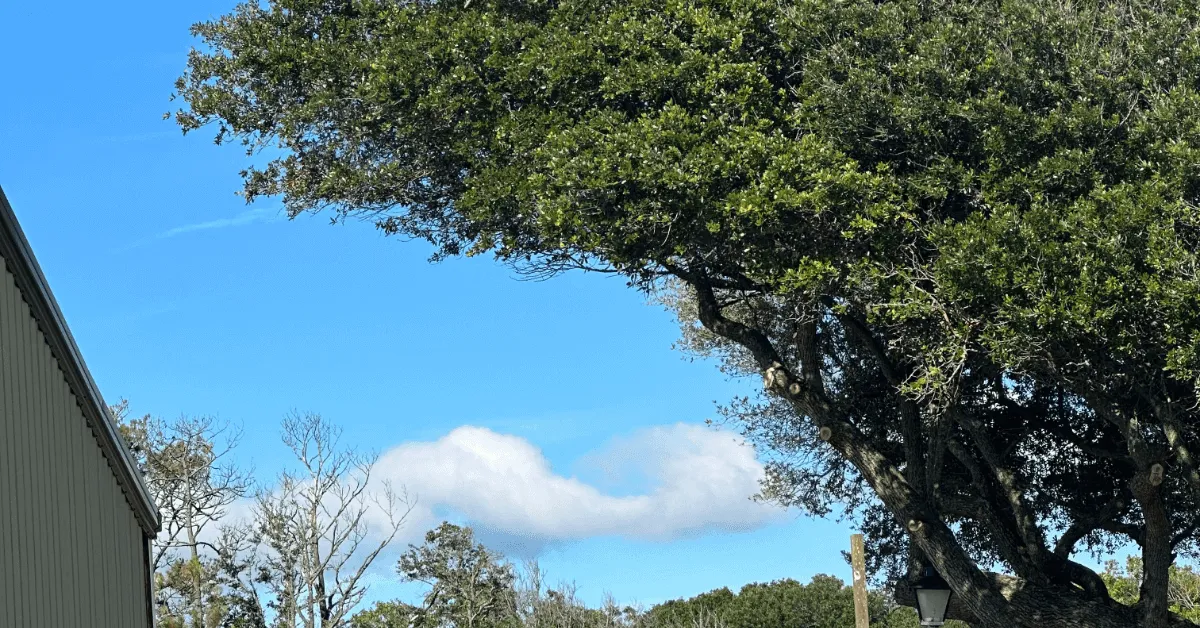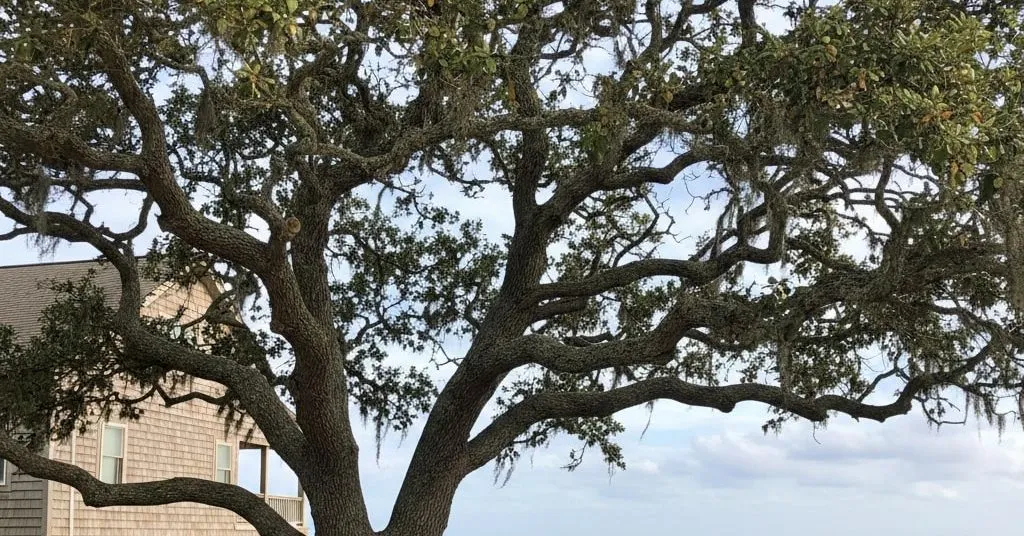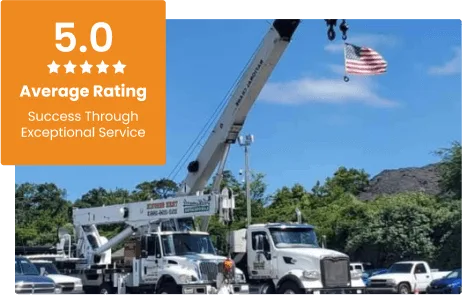
October 29, 2025
When storms hit the Outer Banks, fallen trees are common across roads, yards, and even rooftops. If you’re in Kill Devil Hills, Nags Head, or nearby, you’re likely wondering: does insurance cover tree removal?
In most cases, it depends on where the tree fell, what it damaged, and the details of your homeowner’s policy. This guide explains what’s typically covered, what’s not, and what to do next after storm damage.
When Homeowners Insurance Covers Tree Removal
Tree Damage to Structures
Your homeowner’s insurance will typically cover tree removal when certain key conditions are met. The most important factor is whether the fallen tree has actually damaged an insured structure on your property. If a tree falls on your house, garage, shed, or other covered structure due to a covered peril like wind, lightning, hail, or ice storm, your insurance will generally pay for both the structural repairs and the cost to remove the tree.
Blocked Access
Coverage also extends to accessibility situations. Most policies will cover tree removal costs when a fallen tree blocks your driveway, handicap access ramp, or other essential pathways to your home. This coverage recognizes that removing obstacles to property access is necessary for normal use of your home.
Covered Perils
The cause of the tree fall matters significantly. Insurance companies will cover removal when trees fall due to what they call “covered perils,” such as:
- Severe windstorms or hurricanes
- Lightning strikes
- Heavy snow or ice accumulation
- Hailstorms
- Fire damage
- Vandalism
Coverage Limits and What to Expect
Financial Limits
Tree removal coverage under homeowners insurance usually comes with defined limits. These limits can vary depending on your policy type and provider, but they often cap how much the insurer will pay per fallen tree and per incident. In North Carolina, common policies like HO-3 and HE-7 each have their own coverage structures, which may significantly affect your reimbursement.
If multiple trees fall or if professional removal is required, those limits can be quickly exceeded, leaving homeowners responsible for any additional costs. It’s also important to clarify whether these limits apply per incident or per policy term. That distinction can make a major difference in what you’re actually eligible to recover after a storm.
Always review your policy details or speak directly with your insurer to understand how these limits apply in your specific situation.
Coverage Conditions
These limits apply only when trees damage covered structures. If a tree falls on your home, the removal cost is usually covered up to these limits as part of your claim. However, if a tree simply falls in your yard without hitting anything, most policies won’t cover the removal costs.
Preventive Tree Removal Is Never Covered
Removing a tree before it falls, even if it’s clearly dead or dangerous, is considered regular maintenance. Insurance does not pay for preventive removals.
Neglect Can Void Your Coverage
If a tree was rotting, diseased, or obviously hazardous and you failed to maintain it, your claim could be denied on the grounds of homeowner negligence.
Tree Must Cause Damage or Obstruction to Be Covered
If the tree doesn’t damage a structure or block critical access (like a driveway), insurers generally won’t cover removal, even after a major storm.
Special Considerations for Outer Banks Residents
Unique Insurance Challenges
North Carolina’s coastal location creates unique insurance challenges. As a coastal state frequently impacted by hurricanes and severe storms, many Outer Banks homeowners face special deductibles for wind and named storm damage. These deductibles are often calculated as a percentage of your home’s insured value rather than a fixed dollar amount, potentially making them significantly higher than standard deductibles.
Deductible Types by Damage Category
| Type of Damage | How the Deductible Is Calculated | What to Know |
|---|---|---|
| Standard Perils | Fixed amount (listed in your policy) | Applies to common issues like fire, theft, or a tree falling on your property |
| Wind or Hail Damage | Percentage of your total dwelling coverage | Common in storm-prone areas and may result in higher out-of-pocket costs |
| Named Storm or Hurricane | Higher percentage of your total dwelling coverage | Applies to named storms and is typically the most expensive deductible type |
Flood Damage Is Not Covered
Flood damage is never covered by standard homeowners insurance. In the Outer Banks, where storm surge and flooding are common threats, fallen tree removal caused by floodwater isn’t covered by your homeowners’ policy. You’d need separate flood insurance through the National Flood Insurance Program for such scenarios.
The Claims Process and Working with Professional Tree Services
Documentation and Claim Notification
After storm damage, document everything before cleanup. Take clear photos and videos of the fallen tree, any structural damage, and the surrounding area. This evidence supports your insurance claim and helps establish what caused the tree to fall.
Next, contact your insurance company promptly. Most policies require claims to be reported as soon as possible. Delays can complicate or even reduce your chances of full reimbursement.
Working with Experienced Tree Services
Professional tree services like Albemarle Landscapes and Tree Service understand insurance requirements and can provide detailed invoices that clearly separate covered removal costs from non-covered debris hauling. They can also help document the damage and work directly with your insurance adjuster when necessary.
Understand Covered vs. Out-of-Pocket Costs
Understand what’s covered versus what you’ll pay out-of-pocket. Insurance typically covers removing the tree from damaged structures but may not cover hauling debris away from your property. Make sure you understand these distinctions when getting quotes from tree service companies.
Liability When Neighbor Trees Fall on Your Property
Generally, your own insurance covers damage regardless of where the tree originated. If your neighbor’s tree falls on your house during a storm, your homeowners insurance will typically handle the claim. The key factors are whether the tree was healthy before the storm and whether it fell due to a covered peril.
When the Neighbor Is Negligent
Negligence changes the liability equation. If your neighbor’s tree was obviously dead or diseased and they failed to remove it, they might be held liable for resulting damage. However, North Carolina follows a negligence standard rather than strict liability, so proving negligence requires demonstrating the neighbor knew or should have known about the tree’s dangerous condition.
Subrogation
Insurance companies may pursue subrogation. If the damage is significant enough, your insurance company might try to recover costs from your neighbor’s insurance through a process called subrogation. If successful, you might even get your deductible refunded.
Emergency Tree Removal and Insurance
Higher Cost for Urgent Removal
Emergency tree removal after storms often costs more but may still be covered. When trees fall on homes or block critical access during storms, emergency removal can cost 2–3 times normal rates due to the urgent response required. However, if the removal meets coverage criteria, insurance should still pay up to policy limits.
Prioritize Safety First
Safety takes priority over cost considerations. If a fallen tree poses immediate danger to people or property, don’t delay removal while waiting for insurance approval. Document the emergency situation and contact your insurer as soon as safely possible.
Maximizing Your Coverage
To make the most of your homeowner’s insurance after storm or tree damage, keep these steps in mind:
- Review your policy every year. Coverage and limits vary by insurer, so understand your deductibles and any specific terms for tree damage.
- Consider enhanced landscaping coverage. If you have valuable trees or extensive landscaping, ask about endorsements or riders that increase coverage for tree removal or replacement.
- Keep maintenance records. Save documentation of professional inspections, trimming, or maintenance. This helps prove you maintained your property responsibly if you need to file a claim.
Staying proactive with policy reviews, extra coverage, and proper maintenance records ensures you’re protected before the next storm hits.
FAQs
Does homeowners insurance cover hazardous trees that haven’t fallen yet?
No. Preventive tree removal is considered maintenance and is not covered.
What if my neighbor’s tree falls on my property?
Your insurance typically covers it. But if the neighbor was negligent, your insurer might recover costs through subrogation.
Are all fallen trees covered?
Only if they damage a covered structure or block essential access, and fell due to a covered peril.
Does flood insurance cover tree damage?
Only if the damage was caused by flooding and you have a separate flood policy.
Is emergency tree removal reimbursed?
Yes, if it meets coverage criteria. Always document the emergency and notify your insurer promptly.
Before the Next Storm Hits, Remember This
Homeowners insurance coverage for fallen tree removal in the Outer Banks depends on specific circumstances, but understanding the rules can help you maximize your benefits. Trees that fall due to covered perils and damage insured structures or block essential access are typically covered up to policy limits. However, preventative removal, neglect-related falls, and trees that don’t damage anything usually aren’t covered.
The key to successful tree-related insurance claims is understanding your policy, maintaining your trees properly, and working with experienced professionals who understand the insurance process. In the storm-prone Outer Banks, this knowledge can save you thousands of dollars and ensure your property remains safe and accessible after severe weather events.
Remember that every insurance policy is different, and coverage can vary significantly based on your specific circumstances. When in doubt, contact your insurance agent to discuss your coverage details and consider consulting with experienced tree service professionals who can help you navigate both the physical and financial aspects of storm damage recovery.
Need help with emergency tree removal, documentation, or navigating your insurance claim?
Contact Albemarle Landscapes and Tree Service in the OBX, NC for local help with tree removal, documentation, and insurance coordination.
📞 (252) 256-9128
